The goal of this training was expanding of student language activities, improving teacher instruction and English ability for the sake of cultivating communication skills, and encouraging understanding of other cultures.
140 foreign language (English) instructors (from junior high, high school and special needs schools) and English education development leaders were dispatched, with young people playing a central role.
Project goals
To learn the latest English teaching methodology, raise teaching skills, deepen understanding of other cultures, and improve the communication ability of children and students.
By spreading the fruits of this training not only to their own schools, but to instructors in their regions, they will promote the improvement of English lessons.
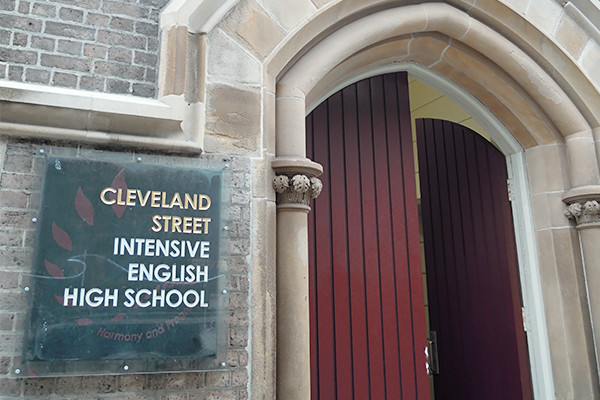
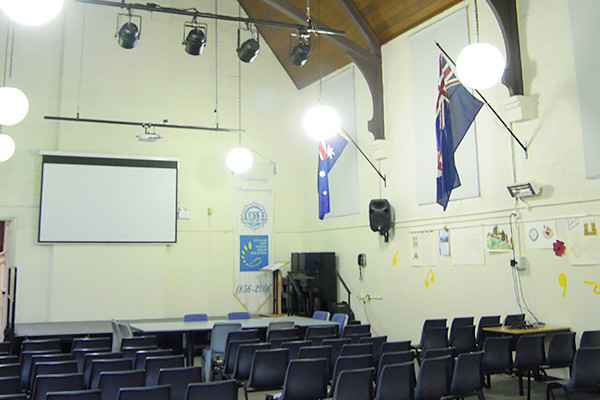
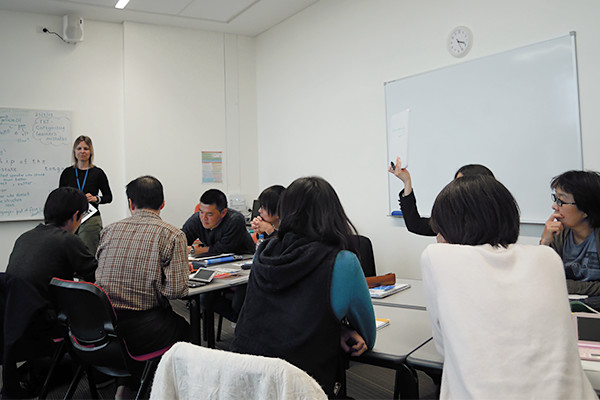
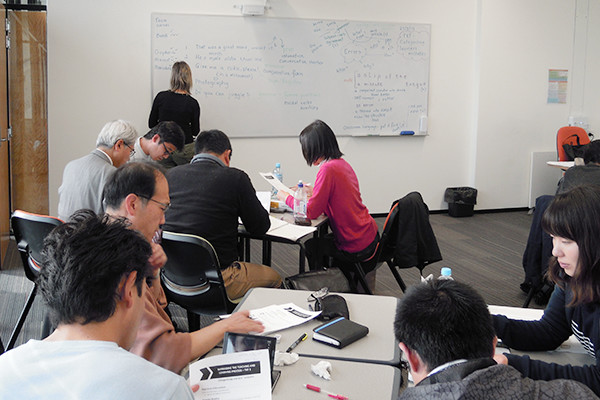
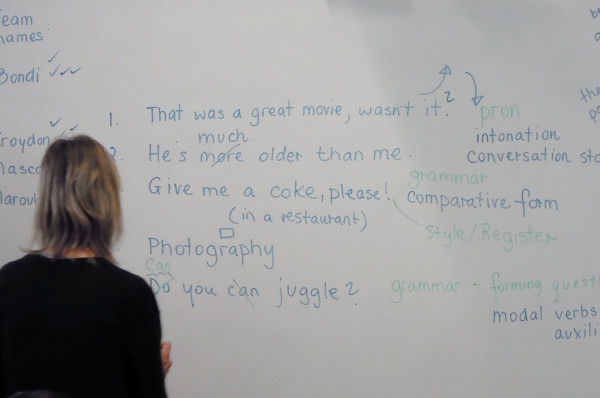
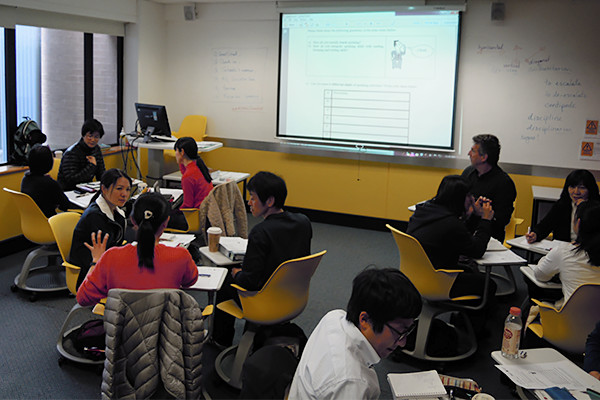
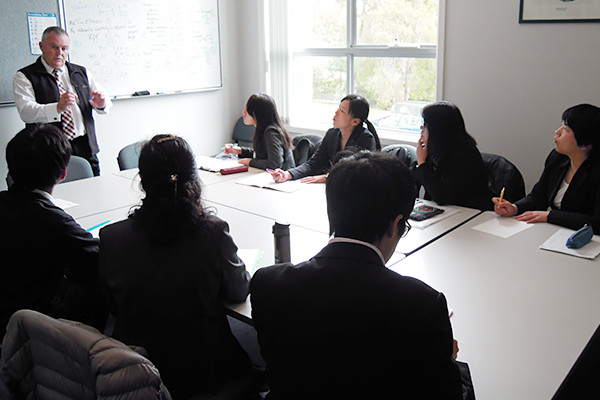
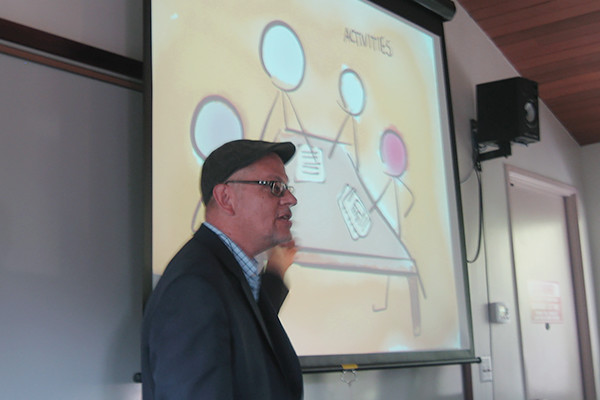

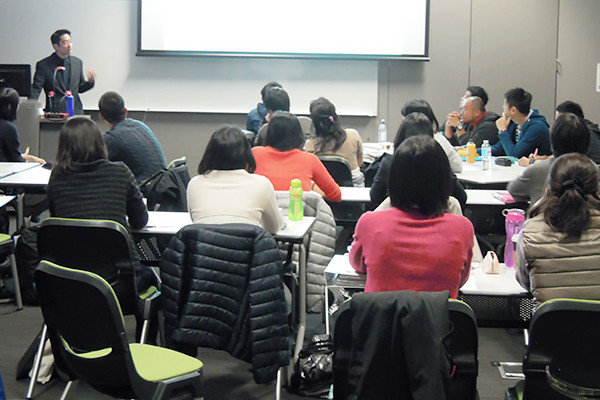
Training Details
Lesson content examples
- TESOL acquisition incorporating knowledge related to English as a second language, knowledge to support English instruction, teaching guides and teaching methods (including use of ICT)
- Improvement of the 4 Language Skills through subjects related to TESOL
- Effective teaching methodology acquisition incorporating speech and debate workshops
- Fieldwork related to the dispatch country's history, culture, and educational administrations
- Attendance at education-related university lectures
- English teaching methodology: speech induction and practice
- Skill teaching methods and pronunciation instruction for listening, presentation technique and activities
Visits to schools/relevant organizations
- Lesson observations and teaching assistant experience at dispatch country elementary, junior high and high schools
- Brainstorming sessions with local school instructors
- Local board of education visits, information exchange
Homestays
- Homestays (experiencing daily life in English, local customs, culture, etc.)
Dispatch destinations
2014 fiscal year results
First half (September 4 to November 30, 2014)
- Australia (University of New South Wales)
Latter half (January 4 to March 22, 2015)
- USA (University of California, Irvine)
2015 fiscal year results
First semester (June 13 to August 23, 2015)
- USA (University of California, Irvine)
- New Zealand (Canterbury Christ Church University)
Second semester (July 31 to October 11, 2015)
- Australia (Macquarie University)
- Australia (University of New South Wales)
Third semester (January 9 to March 20, 2016)
- USA (University of California, Irvine)
2016 fiscal year results
First semester (June 18 to August 27, 2016)
- USA (University of California, Irvine)
- Canada (University of British Columbia)
Second semester (July 23 to October 1, 2016)
- Australia (University of New South Wales)
- >New Zealand (Canterbury Christ Church University)
Elementary school dispatch (June 25 to August 21, 2016)
- USA (University of California, Irvine)
- Australia (University of New South Wales)
Quotes from dispatch participants
We asked the teachers who participated in the aforementioned training to give their opinions.
Question:
Did you find this training useful towards improving your English teaching ability?
Answer:
- It was a good experience to look at my own teaching methods, not just in terms of theory, but also pronunciation, evaluation and more. It was useful to see not only methodology, but actual activities used in university lessons abroad. (Junior high school)
- We learned activities that maintain student interest, and students actively engaged in what we implemented when we returned home. (Junior high school)
- At first I was surprised at the density of the university lessons and the amount of tasks, but the university teacher was very cordial, answering all of my questions and discussion points. I also was able to cooperate with other class participants to learn lots of things that will be useful to improving my teaching ability. I really think it was a great experience. (High school)
Question:
Was this training useful in improving your own language ability?
Answer:
Conversations with my host family and the breakfast meeting with friends every Sunday blessed me with many chances to practice conversation. Even the university lessons offered me balanced training in the 4 Language Skills -- reading (lesson prep), listening (lectures), speaking (discussion) and writing (task reports) -- and was useful in improving my language ability. (High school)
Question:
Was this training useful in improving your understanding of foreign cultures?
Answer:
Cultural exchange activities, holiday activities, the homestay and more let me experience a variety of cultures. There were also students of many different nationalities in class, letting me deepen my understanding of their cultures. (Junior high school)
Question:
Was the lesson assessment at the start and end of the training an appropriate method for measuring your own English teaching ability?
Answer:
Having these at the start and end of training made me deeply consider how to incorporate the knowledge I'd learned at universities into my lessons, challenged me to do so. Also, it was good for us to see how our classmates' lessons changed. (Junior high school)


